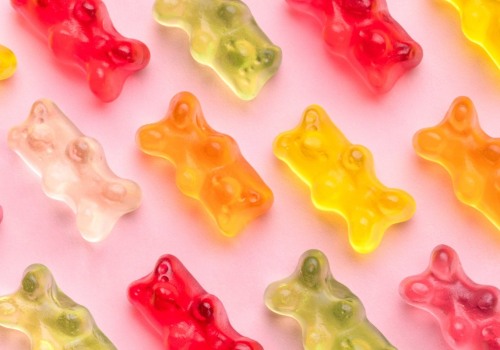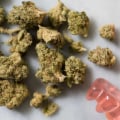When it comes to cannabis edibles, many consumers wonder if the strain of cannabis used really matters. Unlike smoking or vaping, where the effects of different strains can be felt almost immediately, the experience with edibles can be more nuanced and delayed, leading to questions about the importance of strain selection. The short answer is yes, the strain can indeed matter in edibles, but the reasons why might be more complex than simply choosing between an indica or sativa. Understanding how strain affects edibles, including factors like THC and CBD content, terpene profiles, and personal tolerance, can help you make more informed choices when selecting or making your own cannabis-infused treats.
The Role of THC and CBD in Edibles
One of the primary factors that determine the effects of any cannabis product, including edibles, is the cannabinoid content. The two most well-known cannabinoids are THC (tetrahydrocannabinol) and CBD (cannabidiol). THC is the psychoactive component that gives you the "high" associated with cannabis, while CBD is non-psychoactive and is often praised for its potential therapeutic effects, such as reducing anxiety or alleviating pain.
The strain of cannabis used in edibles directly impacts the ratio of THC to CBD, which in turn influences the overall effect. For instance, a strain high in THC might produce a more intense psychoactive experience, while a strain with a higher CBD content might offer a more mellow, therapeutic effect without the same level of intoxication. This is why some people prefer edibles made with strains like ACDC or Charlotte's Web, which are known for their high CBD content and minimal THC, especially if they are seeking relief without the high.
Terpenes and Their Influence
Beyond THC and CBD, the strain of cannabis used in edibles also determines the terpene profile. Terpenes are aromatic compounds found in cannabis (and many other plants) that contribute to the plant’s flavor, aroma, and effects. Different strains have different terpene profiles, which can significantly alter the experience of the edible.
For example, strains high in the terpene myrcene, like Blue Dream, are often associated with more sedative effects, making them potentially better for evening use or for helping with sleep. On the other hand, strains high in limonene, such as Super Lemon Haze, are often more uplifting and energizing, which might be better suited for daytime use. While some of the terpenes may degrade during the cooking process, many remain intact and contribute to the overall experience. This means that the choice of strain can influence whether the edible will make you feel more relaxed and sleepy or more alert and focused.
Full-Spectrum vs. Isolate
Another factor to consider is whether the edible is made with a full-spectrum extract or a CBD isolate. Full-spectrum extracts contain a wide range of cannabinoids, terpenes, and other compounds found in the cannabis plant, while isolates contain only one cannabinoid, usually CBD. Full-spectrum edibles are more likely to retain the effects of the original strain because they include the full array of cannabinoids and terpenes that work together in what is known as the "entourage effect." This synergy can enhance the therapeutic effects of the edible and provide a more balanced experience.
In contrast, edibles made with isolates might not reflect the strain's characteristics as strongly, because they lack the supporting compounds that contribute to the overall effect. This is why many users prefer full-spectrum edibles when strain-specific effects are desired.
Personal Tolerance and Experience
The strain used in edibles also matters because of individual differences in tolerance and experience. Some people are more sensitive to THC and might prefer edibles made with strains lower in THC and higher in CBD to avoid feeling overly intoxicated. Others might have a higher tolerance and prefer a more potent, THC-dominant strain to achieve the desired effects. Additionally, your own body chemistry, including factors like metabolism and endocannabinoid system sensitivity, can influence how a particular strain affects you, even in edible form.
For example, if you’re using edibles to manage pain or anxiety, a strain with a balanced THC to CBD ratio might be more effective than one that is high in THC alone. In this case, an edible made with a strain like Harlequin, which is known for its balanced cannabinoid profile, could offer the therapeutic benefits you’re looking for without overwhelming psychoactive effects.
Strain Selection in Commercial Edibles
When purchasing commercial edibles, strain information is not always prominently displayed. However, more brands are starting to recognize the importance of strain-specific edibles and are labeling their products accordingly. For those who are particular about their cannabis experience, seeking out edibles that specify the strain used can help you achieve the desired effects more consistently.
One example is Vigor Vita CBD gummies, which may highlight the strain used in their products to ensure consumers know exactly what they are getting. This transparency can be particularly helpful for those using edibles for specific health concerns or recreational purposes, allowing them to choose a product that aligns with their needs.
Conclusion
In conclusion, the strain of cannabis used in edibles does matter, though its importance can vary depending on your goals and personal preferences. Factors such as the cannabinoid content, terpene profile, and whether the product is full-spectrum or an isolate all play a role in shaping the effects of the edible. While some people may not notice significant differences between strains in edibles, for others, the choice of strain can greatly influence their experience. As the market for edibles continues to evolve, the availability of strain-specific products is likely to increase, giving consumers more options to tailor their cannabis experience to their individual needs. Whether you’re seeking relaxation, pain relief, or a specific type of high, paying attention to the strain can help you get the most out of your edible experience.






